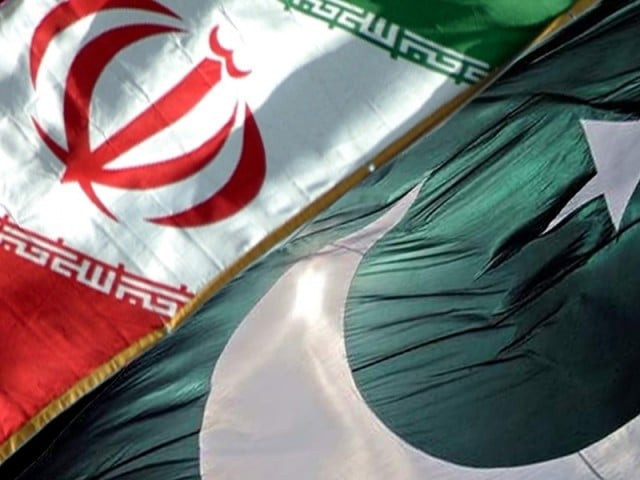Diplomats call for increased regional cooperation among Pakistan, Iran and Turkey
Pakistani diplomat stresses need for Central and South Asian countries to break free from the West's tutelage

Pakistan's Ambassador to the UAE, Jamil Ahmad said that CPEC and BRI will eventually find support from the US due to the magnitude of the project. PHOTO: FILE
The US will not send its troops to Iran, as it does not intend to occupy its land or Iran's oil reserves. "On-ground realities too negate the possibility of US' heavy engagement in Iran as it already looks forward to possibilities of its exit from Afghanistan," said Nurhan while speaking at a dialogue held last week on "US Sanctions and the Future of Regional Cooperation between Pakistan, Iran and Turkey" organised in Karachi by the Centre for Peace, Security and Development Studies.
"US' covert support and protection to Kurdistan Workers' Party (PKK), Gulen and other anti-state factions like the Turkish Marxist group in Belgium have left the so-called strategic partnership between Turkey and the US extremely fragile," observed Nurhan. "As Turkey eyes improving its relations with Iran, some of the country's policies remain contentious to it, yet we do not perceive Iran a 'regional threat' bigger than the US," he added.
Among the participants, Ali Reza Bikdeli, Iran's former ambassador to Turkey, said that his country is looking for other economic avenues for increased trade and commerce with its regional neighbours. This crisis in fact provides an opportunity for Iran to increase its cooperation with both Turkey and Pakistan. Trade between Iran and Turkey has been recorded at its highest during the period prior to the signing of the Joint Comprehensive Plan of Action (JCPOA) between Iran and the US while Iran was still under US' sanctions. The same period also witnessed approximately 3,000 Iranian enterprises and businesses venturing into Turkish markets. This time around too, hopefully ties between Iran and Turkey will improve further.
Pakistan's former ambassador to Iran, Asif Ali Durrani stressed the importance of the Central and South Asian countries breaking free from US and the West's tutelage for trade and economic activity. He said that the period of US sanctions on Pakistan proved to be the best for Pakistan military hardware's Research and Development. Pakistan, Iran and Turkey with abysmally low trade and economic activity need to synchronise their economic and political framework much along the lines of the ASEAN that manages to work efficiently despite the member countries having different political systems.
Improved economic ties between Pakistan and Iran would help the former with projects including the Pak-Iran Gas Pipeline and the slower processing of transaction including Pakistan's payment to Iran for electricity currently being carried in US dollars. Central Asian states should devise a mechanism for currency swap - the way China and Iran and China and Indonesia have implemented.
Exploring newer avenues within and outside the region is one way to lessen or counter the impact of US sanctions on Iran. Among the GCC members, as UAE emphasises on reaching settlement with Iran over Yemen, this development shall possibly develop into softening of GCC countries' stance towards Iran.
Pakistan's Ambassador to the UAE, Jamil Ahmad said that CPEC and BRI will eventually find support from the US due to the magnitude of the project.
Kazem Sajjadpour, former ambassador and deputy permanent representative of the Islamic Republic of Iran to the United Nations, speaking of changing regional dynamics iterated that Central Asia and other regions now have horizontal regionalism contrary to the vertical regionalism prior to the era of Cold War. Pakistan, Iran and Turkey can learn from the framework that Iran, Turkey and Azerbaijan have. Undermining the impact of US sanctions, ambassador Kazem deemed US sanctions a psychological tactic the US is using to seek leverage in the region similar to what it did in Cuba and Venezuela.
By placing sanctions on Iran, the US intends to deliver a message to China and the 72 BRI member countries. Praising Pakistani diplomats and the country's multi-lateral diplomacy, Iran's Kazem noted that Arab countries have weaker diplomatic practices compared to the non-Arab Muslim countries.
The dialogue organised by the Centre for Peace, Security and Development Studies had former and current foreign dignitaries from Iran and Turkey delivering their insights on changing dynamics of Pakistan, Iran and Turkey as US imposes stricter conditions on Iran to halt its nuclear activity.
Published in The Express Tribune, July 23rd, 2019.


















COMMENTS
Comments are moderated and generally will be posted if they are on-topic and not abusive.
For more information, please see our Comments FAQ